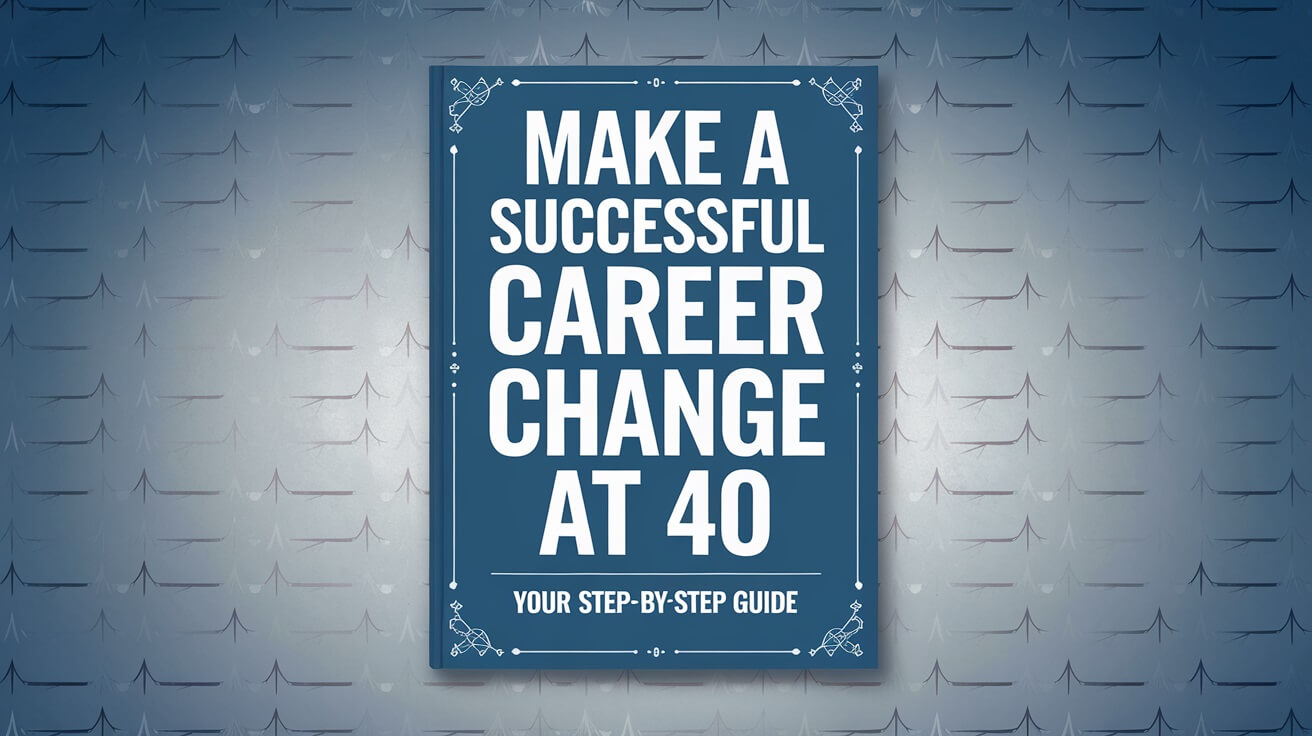
Make a Successful Career Change at 40: Your Step-by-Step Guide
Introduction:
Are you stuck in your current career as you approach 40? You're not alone. Many professionals reach a point where their job no longer excites them, leaving them wondering if there is still time to change. But here's the positive news: it's never too late.
This guide is designed to help you make a smooth and successful career change at 40. It offers actionable steps, expert insights, and a dose of motivation to get you started. Whether you're seeking a new challenge, more fulfillment, or a better work-life balance, this post will equip you with the tools to take that leap.
Why Consider a Career Change at 40?
Changing careers at 40 can feel daunting, but it's a familiar and rewarding journey for many. Let's dive into some of the main reasons people choose to make this change:
- Desire for Fulfillment: Many professionals find that their passions and interests have shifted over time, making their current roles less satisfying.
- Seeking New Challenges: After years in the same industry, a new field can reignite a sense of excitement and purpose.
- Better Work-Life Balance: Certain industries or roles can offer greater flexibility, which becomes increasingly important as life priorities evolve.
- Burnout and job fatigue: Are you feeling drained by your job? A new career path can reignite your passion for work.
Is It Too Late to Start Over? Not. Let's debunk a few common myths:
- Myth: "I'm too old to learn new skills."
- Reality: With countless online courses and training programs, acquiring new skills is easier than ever.
- Myth: "The job market won't value my experience."
- Reality: Your years of professional experience can be a tremendous asset, especially when leveraged as transferable skills in a new role.

Step 1: self-assessment and identifying transferable skills
Before embarking on a new career, it's crucial to understand your strengths and transferable skills—those that apply across various industries.
- What Are Transferable Skills?
These skills you've gained can be valuable in different fields. Examples include:
-
- Communication and interpersonal skills
- Project management
- Leadership and teamwork
- Analytical thinking
- How to identify your transferable skills:
- Reflect on Past Roles: List the tasks you excelled at in previous jobs.
- Evaluate Your Strengths: Consider feedback from peers or performance reviews.
- Use Self-Assessment Tools: Online tools like Myers-Briggs or StrengthsFinder can provide deeper insights into your strengths.
Step 2: Choosing the Right Industry for Your Career Change
Finding the right field is vital to a successful transition. Here's how to explore new industries and align them with your skills:
Research Growing Industries:
- Fields like technology, healthcare, and remote consulting are booming and often welcome career changers with open arms.
Explore Job Market Trends:
- Leverage resources, i.e., the Bureau of Labor Statistics and LinkedIn Insights, to determine which roles are currently in high demand.
Match Skills with Market Demand:
- For example, consider training, sales, or HR roles if you have strong communication skills.
Pro Tip:
Look for industries that align with your passions and offer room for growth. A career change is not just about the next job but finding a path that excites you.
Step 3: Upskilling and building new networks
Once you've identified your target industry, it's time to fill any skill gaps and build connections to help you succeed.
Invest in education and training:
- Online platforms like Coursera, Udemy, or LinkedIn Learning offer courses that can help you quickly gain new skills. Consider certifications in:
- Digital Marketing
- Project management (PMP)
- Data analysis
Leverage Professional Networks: Join industry-specific LinkedIn groups and participate in discussions.
-
- Attend webinars and local networking events.
- Reach out to alum networks or professional associations.
Building mentorship relationships:
Mentors can offer crucial support and insights as you explore a new career path—a new field. Look for people who have successfully made similar transitions or are leaders in your target industry.
Step 4: Financial Planning for a Smooth Transition
Financial readiness is essential when considering a career change, especially if it involves a temporary dip in income.
Assess Your Financial Health:
- Calculate your monthly expenses and identify areas where you can cut back.
- You must set aside an emergency fund to cover your living expenses for six to twelve months.
- Plan for any costs associated with retraining or certification.
Consider Part-Time Work:
- Working freelance gigs or consulting can ease the financial burden while you study or look for new opportunities.
Budgeting for Training:
If a course or certification is required for your new field, ensure it's a worthwhile investment. Look for reviews, job placement rates, and testimonials to gauge the value.
Step 5: Overcoming Fear and Embracing a New Career Path
Changing careers can stir up self-doubt, but you can overcome these challenges with the right mindset.
Recognize Your Fears:
- It's normal to be afraid of failure or rejection. It's essential to recognize these feelings and not let them stand in your way.
- Please write down your worries and counter them with positive affirmations.
Build a resilient mindset:
- Focus on small wins like completing a course or attending a networking event.
- Surround yourself with positive influences and join communities of like-minded individuals.
Handling Criticism:
Some people in your life may question your decision to change careers. Remember, this journey is about you, not them. Stay focused on your vision.
Step 6: Practical Steps to Launch Your New Career
Ready to jump in? Here's how to make the transition smooth:
Tailoring Your Resume:
- Focus on transferable skills and relevant experiences.
- Use keywords from job descriptions to match your resume to the role.
- Example: Highlight "project management" skills from past roles when applying for roles in operations or coordination.
Preparing for interviews:
- Practice reframing your career change as a strength.
- Example Interview Answer: "With 20 years of experience in education, I have developed excellent communication skills and a strong capacity to adapt to new challenges."
Finding Job Opportunities:
- Use job boards like Indeed and Glassdoor.
- Consider working with a recruiter specializing in your target industry.
Step 7: Stories of Success to Inspire Your Journey
Here are a few real-life stories of people who made a successful career change at 40:
Case Study 1: From Corporate Manager to Wellness Coach
Jane spent 18 years in corporate management but always felt a passion for health and wellness. At 42, she pursued certification as a wellness coach, and today, she runs a successful online coaching business.
Case Study 2: From Accountant to IT Specialist
Mark was worn out of the monotony of accounting. After taking a coding boot camp, he transitioned into an IT specialist role, finding new joy in solving technical problems.
Conclusion:
Changing careers at 40 isn't about starting from scratch; it's about building on the foundation you've already laid. You can find a new path that excites and fulfills you with the right strategy, a strong network, and a willingness to learn.
Remember:
- Identify your skills and passions.
- Invest in learning and building connections.
- Develop a financial plan that aligns with and supports your goals.
- Take action today—because your dream career is waiting!
FAQs Section:
1. Is 40 too old to start a new career?"
Not. Many people find their true calling in their 40s and beyond."
2. What are the best careers to switch to at 40?"
Fields like tech, healthcare, and consulting are popular among career changers at 40."
3. How do I financially prepare for a career change at 40?"
Build a financial safety net and consider part-time work during your transition."
4. What skills are most important for a midlife career change?"
Transferable skills like communication, leadership, and problem-solving are crucial."
5. How long does it take to adjust to a new career at 40?"
It varies, but with a focused effort, most people see significant progress within 6–12 months."
Career Development




